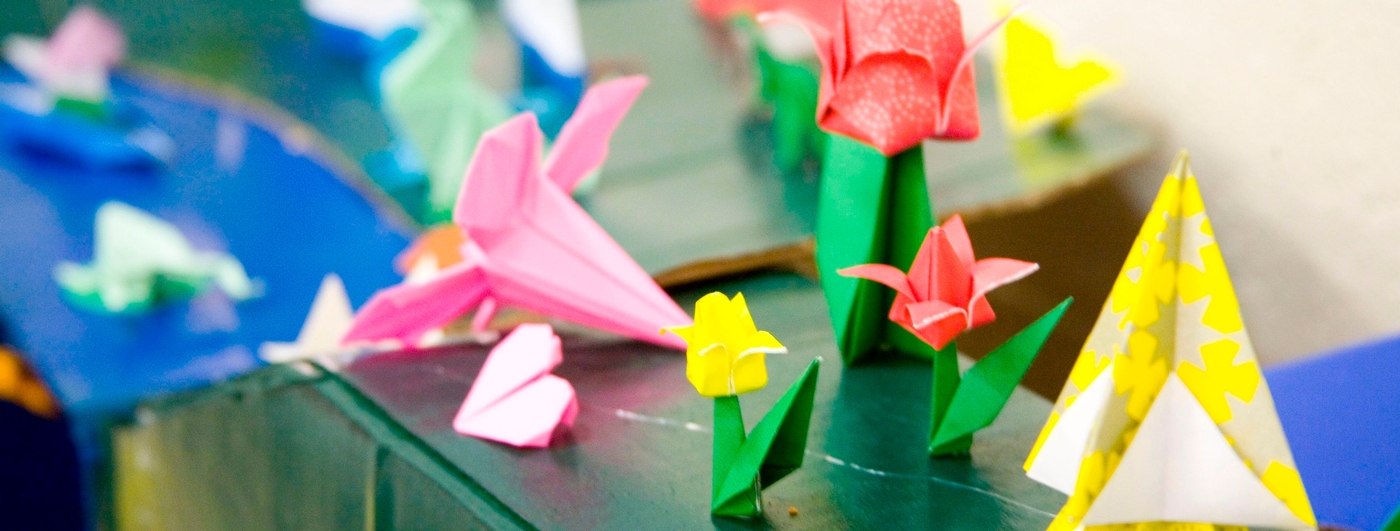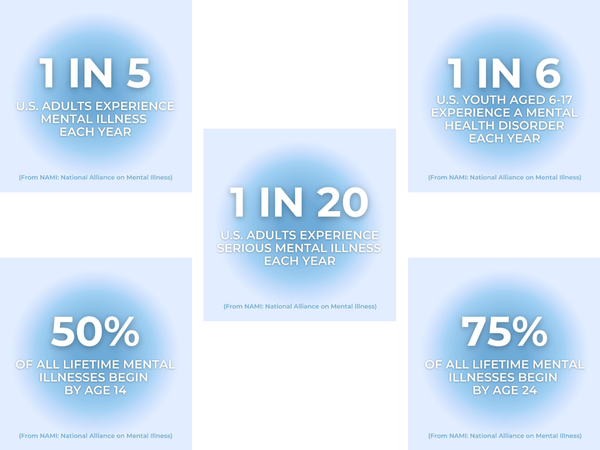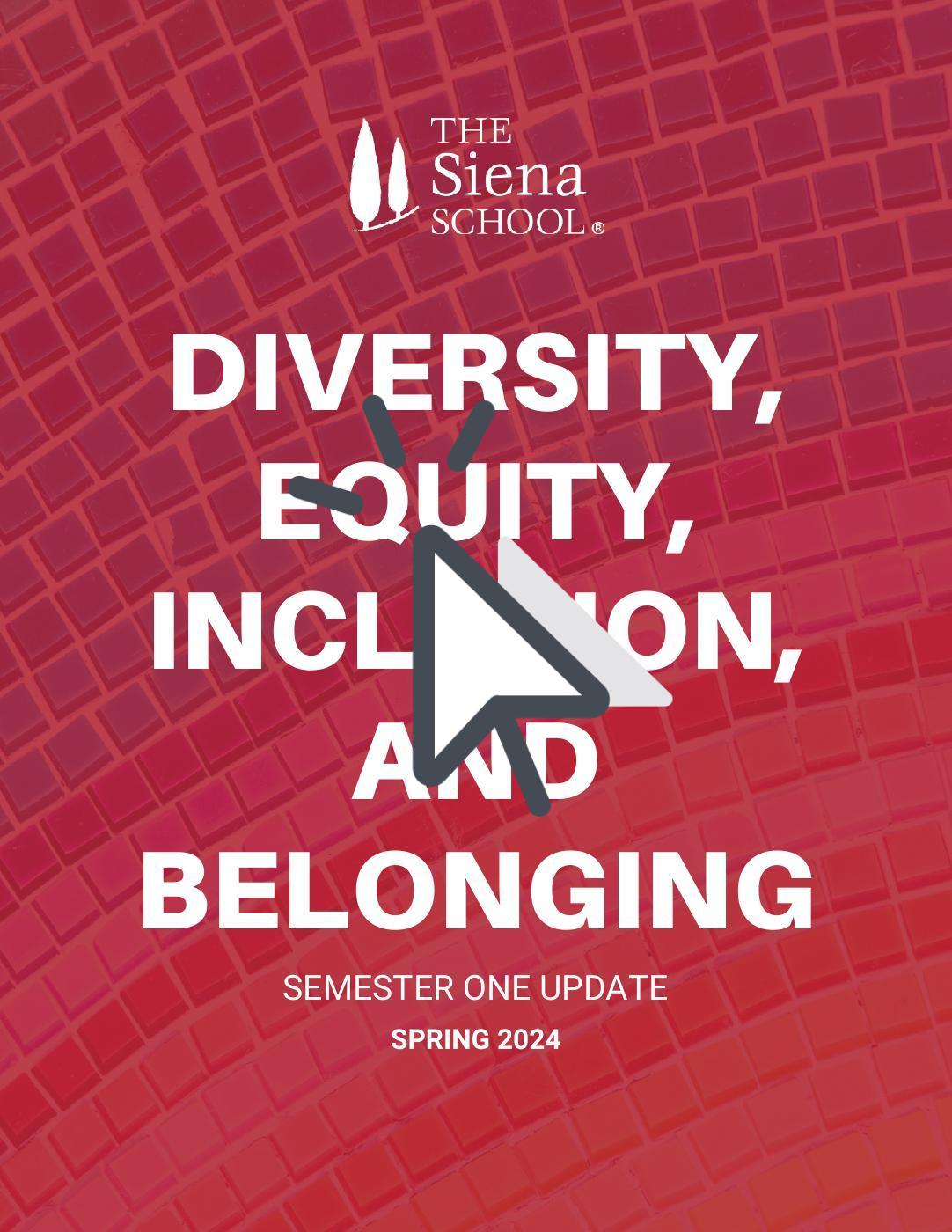Empowering students with language-based learning differences

Siena Blog



The Siena School Blog
Discover, Learn, Celebrate, and Empower
Welcome to Siena's blog, your source for helpful, cutting-edge resources tailored to teachers, parents, and other advocates in the learning differences community. We are dedicated to providing a wealth of curated knowledge spanning various topics, ranging from dyslexia advocacy and awareness to classroom teaching strategies, heritage month profiles, and social and emotional health.
Learning Differences and Student Confidence

Mental Health Awareness Month 2023
The theme for Mental Health Awareness Month 2023 is More Than Enough. As the National Alliance on Mental Illness (NAMI) reminds us,
It’s an opportunity for all of us to come together and remember the inherent value we each hold—no matter our diagnosis, appearance, socioeconomic status, background or ability.
Regardless of whether the school year is winding down or ramping up, families in the LD community can always benefit from up-to-date resources for understanding the social–emotional side of learning differences.
Recent Articles on Learning Differences and Self-Confidence
Here are some salient ideas that I’d like to highlight from these Child Mind Institute articles to help parents and students understand the importance of mental health in the LD community:
How To Help Kids Deal With Embarrassment
- Model how to deal with embarrassment—acknowledge it, remain calm, even identify the embarrassment or say it was also funny.
- Do not avoid embarrassing situations; rather, first work through them and then validate and praise children for their resilience.
- Key quote: “Helping your child gain perspective without minimizing their feelings will make it easier for them to move past negative experiences—and give them an important tool for building self-awareness in the future.”
How To Help Kids Talk About Learning Differences
- Help LD students understand their specific learning difference and discuss how it impacts them.
- Encourage students to practice advocating for what they need or what strategies help them inside and outside the classroom.
- Key quote: “If your child has habits or strategies that help them manage their learning difference, encourage them to let the teacher know.”
Social Challenges of Kids With Learning Differences
- Understand that a non-verbal learning difference could mean challenges with social cues, rules, and understanding jokes.
- Acknowledge that (1) children with ADHD might have trouble organizing an answer, show impulse control issues for sharing, or have trouble listening and (2) children with dyslexia might have trouble with complex language.
- Key quote: “If they’re getting the right support for their learning challenges, they will feel more confident.”
How To Help Kids With LD Build Confidence
- Practice reframing negative thoughts into positive ones.
- Instill a sense of belonging and encourage them to engage in outside activities/interests to help boost their confidence.
- Key quote: “Help your child develop a sense of belonging by helping them make meaningful contributions to family life, friends and community.”
Online Resources for Mental Health Awareness
In addition to the above pieces from Child Mind Institute, here are some other resources to help adolescents, teenagers, and parents get the support they need:
- Brilliant Mindfulness
- Meditation Resources and Guided Meditation Apps
- Mental Health America
- Mental Health Awareness Month (NAMI)
- Mindfulness + Meditation Resources (Stanford Health Library)
- Mindfulness Resources (Calm)
Additional Resources
See also Siena’s Resources webpage for ample links to material on ADHD, dyslexia, parenting, getting support for learning differences, and more. The Siena School blog has recent posts about social media and mental health and lessons in dyslexia advocacy, among many other relevant topics.
The Siena School, a national leader in dyslexia education, serves bright, college-bound students with language-based learning differences on campuses in Silver Spring, MD (grades 3-12) and Oakton, VA (grades 3-11).
10 Experiential Self-Care Lessons in a School Day

Stress management and self-care tools are needed for our students in normal times, but it’s especially important to offer these tools now.
How do we as educators and counselors keep teaching students about self-care and stress reduction when so much has changed—and continues to do so? When possible, practicing the following exercises virtually alongside our students allows them to feel the benefits in the moment and take them outside class time.
![]() Mindful breathing: While teaching the biology of deep breathing and its activation of the parasympathetic nervous system can be helpful, practicing the following breathing exercises can allow students to feel a sense of calm immediately after the practice. Some breathing exercises to note are:
Mindful breathing: While teaching the biology of deep breathing and its activation of the parasympathetic nervous system can be helpful, practicing the following breathing exercises can allow students to feel a sense of calm immediately after the practice. Some breathing exercises to note are:
- 4-7-8 breathing,
- 5-finger breathing,
- shape breathing (such as square breathing),
- hand tracing breathing,
- infinity breathing,
- extending the exhale by one or two breaths,
- taking 10 deep breaths.
![]() Progressive muscle relaxation: You can guide students through a brief relaxation exercise of tensing specific muscle groups and then relaxing that muscle group completely. Continue this from head to toes. This is a great stress reliever that students can easily do on their own.
Progressive muscle relaxation: You can guide students through a brief relaxation exercise of tensing specific muscle groups and then relaxing that muscle group completely. Continue this from head to toes. This is a great stress reliever that students can easily do on their own.
![]() Mindfulness: There are numerous ways to practice mindfulness, many of which our students might be doing every day. Grounding exercises help students better understand the concept of paying attention to the present moment without judgment. A simple way to introduce the concept of mindfulness is to have students practice the 5 senses by naming:
Mindfulness: There are numerous ways to practice mindfulness, many of which our students might be doing every day. Grounding exercises help students better understand the concept of paying attention to the present moment without judgment. A simple way to introduce the concept of mindfulness is to have students practice the 5 senses by naming:
- 5 things they can see,
- 4 things they can hear,
- 3 things they can feel,
- 2 things they can smell, and
- 1 thing they can taste.
![]() Positives: Research has shown us that when people list 3 Good Things that happened during their day for a period of at least two weeks, they have lower stress and anxiety. Having students list 3 Good Things, big or small, regularly encourages them to focus on the positives in their lives. For instance, Siena teachers and students shared some early positives from our move to distance learning.
Positives: Research has shown us that when people list 3 Good Things that happened during their day for a period of at least two weeks, they have lower stress and anxiety. Having students list 3 Good Things, big or small, regularly encourages them to focus on the positives in their lives. For instance, Siena teachers and students shared some early positives from our move to distance learning.

![]() Gratitude: Ask students to write a letter of gratitude during a class and what they appreciate about a person, object, topic—or even themselves.
Gratitude: Ask students to write a letter of gratitude during a class and what they appreciate about a person, object, topic—or even themselves.
![]() Emotion check-in: Create a routine in which students label how they are feeling. This can be done through a Google form or in other creative ways; educators can offer new emotional vocabulary to help students expand their (evolving) feelings.
Emotion check-in: Create a routine in which students label how they are feeling. This can be done through a Google form or in other creative ways; educators can offer new emotional vocabulary to help students expand their (evolving) feelings.
![]() Controlling what they can: Ask students to draw a circle on a page and write things they can control inside the circle: e.g., their attitude, their perspective, their hygiene, their next meal or drink, how they spend their time, how they care for themselves, and so on. On the outside of the circle, ask students to write things they cannot control at this time; e.g., how others act, the virus, when things will open, etc. Identifying what they can and can’t control can help assuage students’ anxiety, as well as ground them in the moment.
Controlling what they can: Ask students to draw a circle on a page and write things they can control inside the circle: e.g., their attitude, their perspective, their hygiene, their next meal or drink, how they spend their time, how they care for themselves, and so on. On the outside of the circle, ask students to write things they cannot control at this time; e.g., how others act, the virus, when things will open, etc. Identifying what they can and can’t control can help assuage students’ anxiety, as well as ground them in the moment.
![]() Creative projects: Often when students engage in creative endeavors, they are naturally practicing mindfulness. After working on a project, ask students to reflect on how they felt while doing it.
Creative projects: Often when students engage in creative endeavors, they are naturally practicing mindfulness. After working on a project, ask students to reflect on how they felt while doing it.
![]() Movement: Whenever possible, add movement into your lessons. For example, there are many chair yoga poses or other quick bursts of movement that students can do. See this blog post from Siena for how teachers keep students (and themselves!) moving during online classes.
Movement: Whenever possible, add movement into your lessons. For example, there are many chair yoga poses or other quick bursts of movement that students can do. See this blog post from Siena for how teachers keep students (and themselves!) moving during online classes.
![]() Self-care: Ask about your students’ self-care routines. Encourage them to name ways they take care of themselves. Normalize self-care and allow students to share this with one another; hearing from their peers may just encourage them to adopt a new tool. If they’re reticent about sharing, consider giving them some suggestions based on your own self-care techniques. (See below for an example of a weekly wellness challenge.)
Self-care: Ask about your students’ self-care routines. Encourage them to name ways they take care of themselves. Normalize self-care and allow students to share this with one another; hearing from their peers may just encourage them to adopt a new tool. If they’re reticent about sharing, consider giving them some suggestions based on your own self-care techniques. (See below for an example of a weekly wellness challenge.)
Anxiety management and attention to mental health will continue to be important in the coming weeks and months. Getting students to think now about self-care and anxiety management not only helps them finish the school year; it also sets them up for similar practices in the summer when they might miss the structure of school.
As teachers, counselors, parents, and others in students’ support networks are caring for our whole selves, we can keep ensuring that students know how to care for themselves and others.


